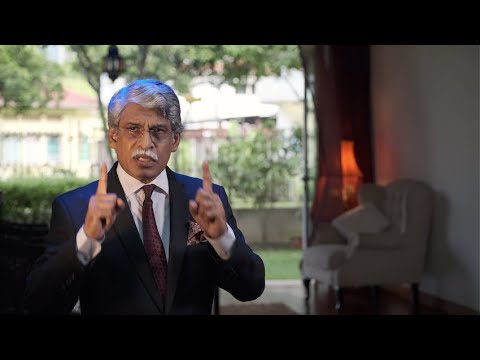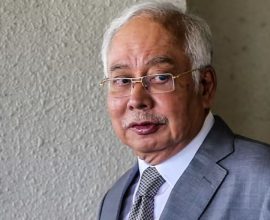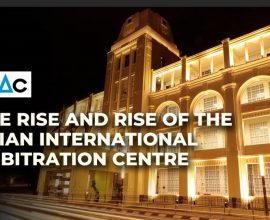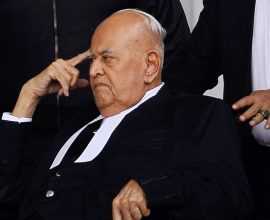Why I disagree with the Attorney General’s opinion?
Here is why
[1]. The question on everyone’s mind is:
‘During an Emergency, can the King summon Parliament, without the PM’s advice?’
[2]. My video
On 18 June 2021 I published a video entitled, ‘Who can summon Parliament — and when?’
There, I took the view that on a proper construction of sec.14(1)(b) of the Emergency (Essential Powers) Ordinance 2021, it was for the King to determine the date when Parliament should be summoned.
[3]. On 25 June 2021 the Honourable Attorney General released a Media Statement. It bristles with legal authorities.
The Hon. AG argues that the King can summon Parliament only on the advice of the Prime Minister.
In his opinion, section 14(1)(b) of the Emergency Ordinance 2021,
on its proper construction – means just that —that it is not for the King, alone, to determine the date on which Parliament should be summoned to sit.
[4]. Two issues flow from these two different sets of opinions: — one is a Conflict, the Second is a Constitutional Impasse
[5]. We deal with the first issue: the conflict
There are now two different ways of interpreting sec. 14(1)(b).
Let me refresh your memory.
Sec. 14(1)(b) states,
‘For so long as the Emergency is in force –…
(b) Parliament shall be summoned, prorogued, and dissolved
on a date as the Yang Di-Pertuan Agong thinks appropriate.’
Sec. 14 says nothing about the Prime Minister.
[6]. But the attorney general brings into play article 40 of the federal constitution.
Article 40 states, in no uncertain terms, that the King must only act in accordance with the advice of the Prime Minister.
[7]. Or does it? Let us look at it
Article 40 (1) states:
‘In the exercise of his functions under this Constitution or federal law [note this phrase]…[the King] shall act in accordance with the advice of the Cabinet].’
The phrase ‘in the exercise of his functions’ means the obvious: It refers to his Majesty’s duties.
[8]. But the King’s duties under what law?
The King’s duties fall under two categories: (a) Under the Constitution or (b) federal law’.
‘Federal law’ means laws passed by Parliament.
[9]. So the duties of the King during the current Emergency — under Article 150 —are controlled by two laws.
One is Constitutional law.
The second set of laws fall outside the Constitution.
These are called ‘Emergency (Essential Powers) Ordinance 2021’.
The ‘Emergency Ordinance’ has not been approved by Parliament — yet. Therefore it is not federal law.
[10]. So, when the King wishes to call Parliament, he has two powers at his disposal.
He can use his powers in the Constitution in Article 55.
Art. 55 instructs how Parliament should be ‘summoned prorogued or dissolved’.
Art 55 (1) states that the King must summon Parliament.
When you combine Art.55 with Art.40, it means, if the Prime Minister tells the King, ‘Your Majesty – please summon Parliament on the 10th of July’, the King cannot refuse.
[11]. But does the Prime Minister have the same power – if he wishes to dissolve Parliament?
Suppose the incumbent Prime Minister- loses the majority support in Parliament.
He has two choices: resign as Mahathir did, or call for an election.
Suppose the incumbent PM goes to the King, and advises him in this way:
‘Your majesty: I have lost command of the majority. Can Your Majesty please dissolve Parliament — so we can call an election?’
[12]. Must the King follow this advice?
The answer to that question lies in Article 55 (2).
The King does not have to listen to what the PM says.
It says, in Article 55 clause 2, that ‘[the King] may prorogue or dissolve parliament’.
In law, the word ‘may’ means, the King can either say ‘Yes’, or ‘No’.
Again, Article 40 (2) also gives him that discretion.
So, the myth that the King must completely and 100% accept whatever the Prime Minister advises him to do – is simply not true.
So long as the King acts within the principles of the Rule of Law, and within the spirit of the Constitution — the King can act in his discretion – even though he may depart from the advice of the Prime Minister.
[13]. We now come to the 2nd source of the king’s powers to summon parliament — these are “additional powers” the emergency ordinance gives the king
As we have discussed many times, sec. 14(1)(b) of the Emergency Ordinance states that the King can call Parliament to meet ‘on a date as the King thinks appropriate’: not the PM!
[14]. The Attorney General argues that section 17 of the Emergency Ordinance preserves the Prime Minister’s powers in Article 40.
He says the King must listen to the PM’s advice.
I fear I have to disagree with this interpretation.
If you look very, very carefully at sec. 17 of the Ordinance, it gives extra powers to the King.
This is what it says:
‘17. Powers under the ordinance shall be in addition to the powers under the written laws:
‘For so long as the Emergency is in force, the powers given under this ordinance shall be in addition to and not in derogation of, the powers given under any other written law for the time being in force.’
Look at this sentence:
‘For so long as the Emergency is in force, the powers given under this ordinance shall be in addition to…’.
The phrase ‘the powers given…’ is crucial.
These powers are given to whom?
The AG says this means the powers given to the Prime Minister to advise the King.
[15]. I have the opposite view.
I think, how you use Section 17 of the Emergency Ordinance depends on the purpose of section 17.
[16]. The issue is how much power does section 14 (1) (b) give to the King?
The AG argues the powers of the King are limited to the advice of the Prime Minister.
But section 17 can also be read this way:
‘For so long as the Emergency is in force, the powers given to the King shall be in addition to the powers given to him under the Constitution’.
[17]. What happens then?
It means in normal circumstances the King has no power to do anything without the advice of the PM.
In an Emergency however, the King has the extra power in section 14(1)(b) to call Parliament on a date he chooses.
This is because he has ‘additional powers’ under section 17.
Is that not the more reasonable position to take?
[18]. But there is a nuclear option that I now exercise.
The Attorney General stands his entire argument on Article 40.
Article 40 and 55 are constitutional provisions. You know what happens when we apply them together:
Art 55 read with Art 40 means the King can call parliament only on the PM’s advice.
[19]. Contrast that with what the Emergency Ordinance says:
Section 14 of the Emergency Ordinance, read with Sec 17 says: ‘the King can set the date — because he has ‘additional powers’.
[20]. So Sec. 14 and 17 of the Emergency Ordinance are in conflict with Articles 40 and 55.
[21]. So what? What happens next? Which prevails? Which is right?
We start with the obvious choice: with the Constitution.
Article 4 of the Constitution states that, any law that is against the provisions of the Constitution are void.
[22]. Yet, when you go a little deeper, you hit an iceberg –in this case, Iceberg No.1.
Section 18 of the Emergency Ordinance states that,
‘if there is any inconsistency between the Ordinance and any other ‘written law’, the Ordinance shall prevail.’
Please pay particular attention to the phrase ‘Written law’.
[23]. You will realise that you have hit a second iceberg.
Art 160 says, ‘Written law’ includes the provisions of the Federal Constitution.
Section 18 of this Emergency Ordinance says that if there is a conflict between the Emergency Ordinance and a Constitutional Provision the Ordinance Prevails.
Does an ordinance, created during Emergency, without parliamentary approval, have powers that override the Constitution?
Yet, Article 4 states constitutional provisions are superior to any other written law.
But section 18 of the Ordinance says the provisions of the ordinance override any other ‘written law’.
So there is a massive problem between Art. 40 and 55 of the Federal Constitution and Sections 14(1)(b), 17, and 18 of the Emergency Ordinance
Now that we are in a state of Emergency, does section 18 knock out the Constitution?
[24]. THIS LEADS ONLY THE ONE QUESTION.
Is there now a constitutional deadlock — or a constitutional impasse — between the provisions of the constitution and the provisions of an emergency ordinance?
I think the answer is a ‘Yes’.
WHO CAN RESOLVE THIS IMPASSE?
Article 150 (8) states no court can question the Proclamation of Emergency or the Emergency Ordinance:
Two recent High Court cases confirm this position.
Since no court can question the Proclamation of the Emergency or its Emergency Ordinance, there is only one mechanism left in the Constitution that can question (a) the government; (b) the proclamation of Emergency and (c) the Emergency ordinances — it is Parliament.
That is guaranteed in Article 150(8).
It says the Proclamation and the Ordinance have to be ‘laid before’ Parliament.
Parliament can accept or reject the proclamation and the Emergency Ordinance.
[25].There are two other points i want to make in passing:
He who makes a law cannot interpret it.
That will lead to capriciousness. Because he will interpret it any way he wants.
Second, in all the cases that the Attorney General quotes — in all of those Emergency situations, the Emergency Ordinances did not have any equivalent of sections 14(1)(b), 17 or 18 of the current Emergency Ordinance.
[26]. Since only Parliament can question these ordinances is it not imperative, and urgent, for Parliament to convene?
So that we can address this rising tide of Covid 19 infections, and the alarming increase in the number of people dying from the pandemic?
Why then is there a need to delay calling Parliament until late August or early September of this year, in a matter of national importance and which is threatening the peace of this country?
One must use any available mechanism to resolve the dire needs of the people.
One must not use the law to propagate a constitutional conundrum.
Politicians cannot act in their best interest.
They must act in the best interest of the people they swore to protect.





